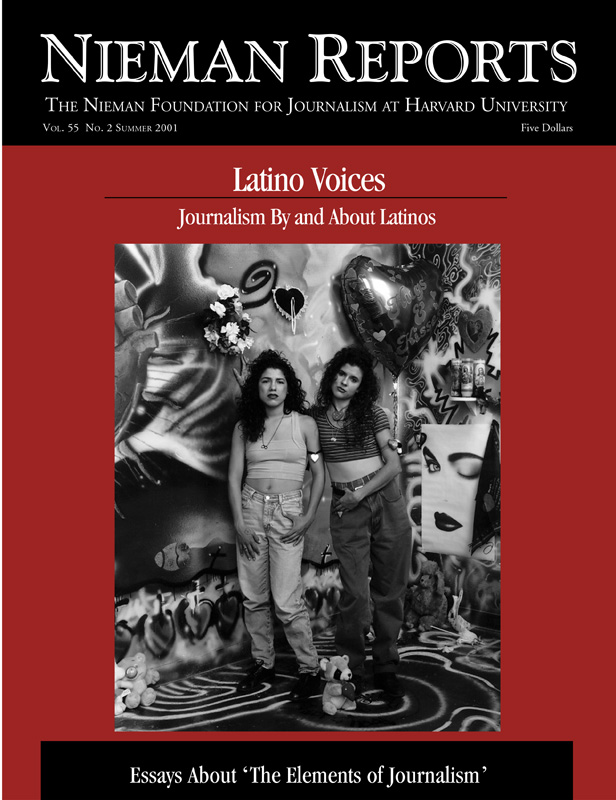Four years ago, 25 of this nation’s most influential journalists came together at Harvard University with a shared sense that something was seriously wrong with their profession.
“They barely recognized what they considered journalism in much of the work of their colleagues. Instead of serving a larger public interest, they feared, their profession was damaging it,” write former Nieman Curator Bill Kovach and Tom Rosenstiel, director of the Project for Excellence in Journalism in the introductory chapter of their book, “The Elements of Journalism: What Newspeople Should Know and the Public Should Expect.”
By day’s end, the group had a plan. Soon, they’d have a name. The plan: “to engage journalists and the public in a careful examination of what journalism was supposed to be.” The name: The Committee of Concerned Journalists. During the next two years, the committee organized “the most sustained, systematic, and comprehensive examination ever conducted by journalists of news gathering and its responsibilities.” In 21 public forums, 3,000 people attended and more than 300 testified. In-depth interviews were also conducted asking journalists about their values. Surveys were done and content studies of news reporting undertaken.
“The Elements of Journalism,” published this spring by Crown Publishers, is the “fruit of that examination,” and in it the authors set forth the nine principles to emerge from this intensive analysis. In this issue of Nieman Reports, we are highlighting these nine principles because we think there is great value to be gained by conversing about them. We asked journalists from the United States and other countries to address a specific principle through the prism of their experiences. After an introductory article by Michael Getler, The Washington Post’s ombudsman, each principle will be articulated in the authors’ words (excerpted with permission), then reflected upon in two essays written by journalists.
Following the book’s publication, Kovach and Rosenstiel began speaking about these nine principles with journalists, civic groups, and educators, igniting essential dialogue about journalism’s future course. As Kovach noted recently, “We’ve got to make sure that as the public dissatisfaction grows, it doesn’t grow the wrong way, towards censorship that says, ‘Stop this. Stop that.’ We want a public that is more aware about what quality journalism means to them and their lives and what they’ve got a right to expect and how to recognize it.”
A curriculum based on the book has also been developed and is now being used by news organizations in workplace settings. “A number of news organizations have invited us to talk with new staff members,” Kovach said. “The young kids I’m seeing out there are on fire. They almost mob us when we go in and start talking about these things. They’re so hungry to talk about this kind of journalism. They didn’t get this in journalism school nor in newsrooms because newsrooms don’t mentor their young anymore…. And part of what we’re telling editors with whom we talk is that they have an obligation to talk with groups in their community about who they are, what they are, why they do it, so they also become part of the teaching corps.”


